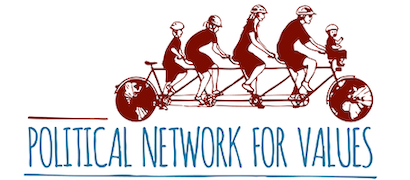An international summit of political leaders was held in the Chamber of Representatives of Bogotá (Colombia) under the title Facing the upsurge of the global crisis: Solid principles for a better future. This was the Third Transatlantic Summit organized by the Political Network for Values, following similar summits in New York in 2015 and Brussels in 2017.
The summit demonstrated that many legislators around the world want to defend and promote the values and principles of their own cultures, especially those that best guarantee the development of civilization, in the face of the new prevailing world order. Accordingly, they denounce the pressure from international organizations such as the United Nations (UN), the Organization of American States (OAS) and European institutions to interfere in these principles through measures contrary to the values and customs of each country. In this regard, and before the upcoming OAS General Assembly to be held in Medellin, Colombia, next June, legislators from across the Americas have issued a statement asking not to promote abortion with money from their countries’ contributions to these international institutions.
Former Colombian President Álvaro Uribe participated in the welcome ceremony on April 4 and stressed the importance of the family. “The great confrontation that dominates our countries today is not of the left against the right, as traditionally understood, but between anarchy versus the state of law and order. There the future is at stake, and families and the civic pro-life movement play a decisive role.”
Hosts of the Summit were Colombian Senator María del Rosario Guerra and Jaime Mayor Oreja. Mr. Oreja, President of the Political Network for Values, emphasized that “Christian values and principles have never been so necessary, and never before have they been so attacked. … There is a dominant fashion with the obsession to destroy and replace Christian values.” Ms. del Rosario Guerra noted that, “today it is frowned upon to speak of moral and ethical truths, and the current discourse is reduced to the subjective and relative, which has led to the weakening of the principles and values that are the foundations of society.” The senator denounced that, “death has become the first solution to all the problems and adversities that present themselves in life. An example of this is the promotion of abortion and euthanasia as solutions to pregnancies that present difficulties and to terminal illnesses.”
Leaders such as Venezuelan Julio Borges, former president of the Venezuelan National Assembly and representative of the interim government to the Lima Group, also participated in the plenary sessions. He pointed out that, “the fall of Maduro will be like the fall of the Berlin Wall, in Latin America thirty years later. The Venezuelan struggle is not only against a failed state, but to liberate the region from a system of hunger and destruction.”
Hungary’s Minister of State for Family and Youth, Katalin Novák, presented her family policy which is proving so successful in her country. “Public policies with a family perspective work where they have been implemented and have the broadest support of the people,” she said. Kazimierz Kuberski, Polish Deputy Minister of Family, added, “Poland is investing in the long term for the benefit of its society by making an ambitious bet in favor of the family.”
The President of Culture of Life Africa of Nigeria, Obiauju Ekeocha, criticized the cultural imperialism of the West on Africa, which tries to impose ideas that threaten the values and customs of indigenous people. Following her, Sharon Slater, President of Family Watch International in the United States, condemned the UN’s sex education policies, which parents reject, and the imposition of gender ideology in education. Canadian Member of Parliament Garnett Genuis explained the dire consequences of the legalization of euthanasia.
Faced with the intensification of the offensive on a global scale – gender ideology, anti-natalism, populism, corruption, organized crime, etc. – the affirmation of solid principles on which to build the future is urgent: human dignity, the right to life, the indispensable role of the family and the institution of marriage, the strengthening of freedoms, freedom of religion and conscience, freedom of education, and always based on honesty in the management of public resources.



